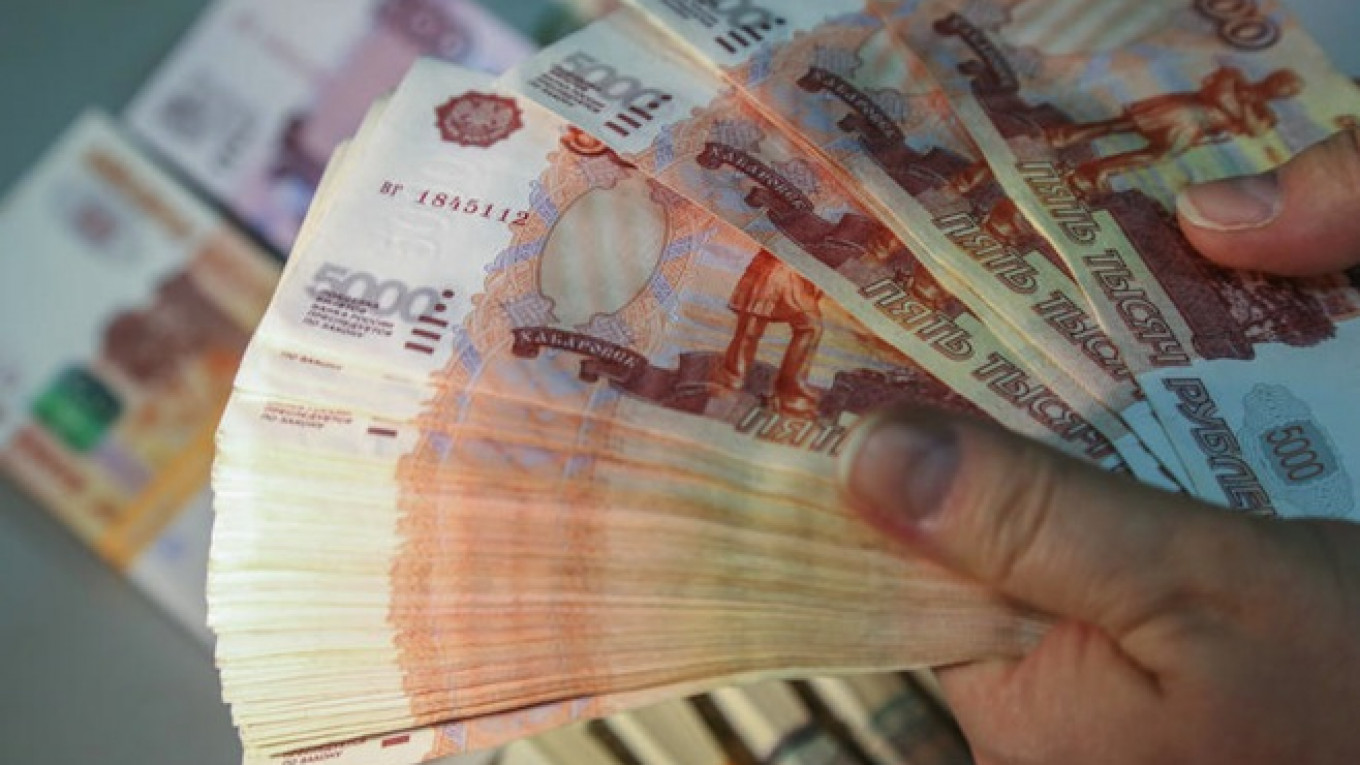Russia's Central Bank on Monday moved a step closer to its goal of a freely floating ruble exchange rate by widening its trading corridor for the ruble and reducing the interventions it carries out to move the corridor.
The moves are part of a long-term policy shift to make inflation a more important benchmark than the exchange rate after several months earlier in the year when the bank was forced to defend the ruble, which came under pressure due to the crisis in neighboring Ukraine.
As part of the plan, the ruble's trading corridor will be abolished altogether from January next year and regular daily interventions will cease, although the bank will reserve the right to make discretionary interventions in the interests of financial stability.
The bank said in a statement that starting from Monday it had widened its exchange-rate corridor by 2 rubles to 9 rubles and reduced the intervention threshold for moving the corridor against a dollar-euro basket to $350 million from $1 billion.
It also said it would stop carrying out interventions within the corridor to reduce exchange rate volatility.
"The stated changes have been made within the framework of moving to an inflation-targeting regime, one of the essential conditions for the successful realization of which is stopping managing the exchange rate," the bank said, reiterating that it aims to move to a free float by next year.
The Central Bank moves would normally be bearish for the ruble, as the bank will be less active in currency markets to guide the ruble's exchange rate, but the Russian currency temporarily ignored the move in early trading, supported by the approaching end-of-month tax period.
The ruble was 0.3 percent stronger against both the dollar and the euro at 12.30 p.m. in Moscow.
Alexander Morozov, chief economist for Russia and CIS at HSBC, said Monday's policy move would likely be followed by a cancellation of interventions to move the corridor, effectively completing the shift to a freely floating ruble.
"Given that the Central Bank has inflation at the top of its list of priorities, this requires a tighter monetary policy so as not to lose the trust of market participants," he said.
In March, the Central Bank dramatically raised the size of its intervention threshold, to $1.5 billion from $350 million, after the escalating Ukraine crisis caused a massive ruble sell-off, heightening concerns about Russia's overall financial stability.
The higher threshold paved the way for the Central Bank to spend some $25 billion to defend the ruble, but in June it signaled its policy shift was back on track by reducing the size of interventions to curb currency market fluctuations.
See also:
A Message from The Moscow Times:
Dear readers,
We are facing unprecedented challenges. Russia's Prosecutor General's Office has designated The Moscow Times as an "undesirable" organization, criminalizing our work and putting our staff at risk of prosecution. This follows our earlier unjust labeling as a "foreign agent."
These actions are direct attempts to silence independent journalism in Russia. The authorities claim our work "discredits the decisions of the Russian leadership." We see things differently: we strive to provide accurate, unbiased reporting on Russia.
We, the journalists of The Moscow Times, refuse to be silenced. But to continue our work, we need your help.
Your support, no matter how small, makes a world of difference. If you can, please support us monthly starting from just $2. It's quick to set up, and every contribution makes a significant impact.
By supporting The Moscow Times, you're defending open, independent journalism in the face of repression. Thank you for standing with us.
Remind me later.


